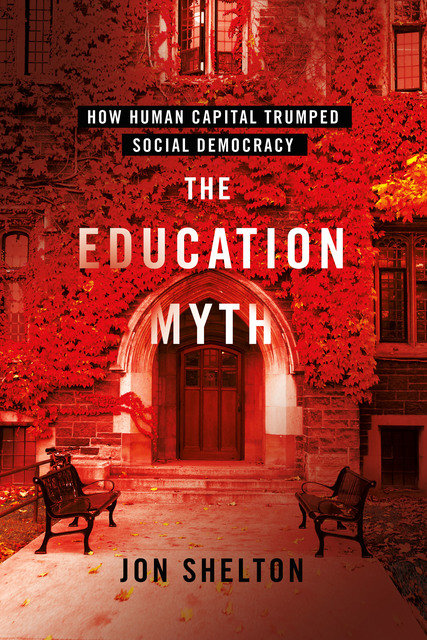The Education Myth
How Human Capital Trumped Social Democracy
The Education Myth questions the idea that education represents the best, if not the only, way for Americans to access economic opportunity. As Jon Shelton shows, linking education to economic well-being was not politically inevitable. In the eighteenth and nineteenth centuries, for instance, public education was championed as a way to help citizens learn how to participate in a democracy. By the 1930s, public education, along with union rights and social security, formed an important component of a broad-based fight for social democracy.
Shelton demonstrates that beginning in the 1960s, the political power of the education myth choked off powerful social democratic alternatives like A. Philip Randolph and Bayard Rustin's Freedom Budget. The nation's political center was bereft of any realistic ideas to guarantee economic security and social dignity for the majority of Americans, particularly those without college degrees. Embraced first by Democrats like Lyndon Johnson, Jimmy Carter, and Bill Clinton, Republicans like George W. Bush also pushed the education myth. The result, over the past four decades, has been the emergence of a deeply inequitable economy and a drastically divided political system.
Jon Shelton is Associate Professor of Democracy and Justice Studies at the University of Wisconsin-Green Bay. He is the author of Teacher Strike! Follow him on Twitter @prof_shelton.
Table of Contents
The Education Myth
Uncategorized
THE EDUCATION MYTH
Jon Shelton- This text has 0 annotations
- This text has 0 highlights

